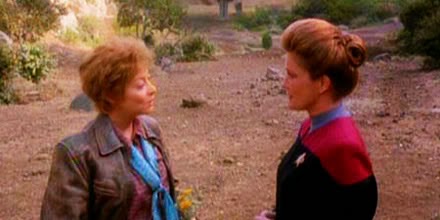Five decades ago Leonard Nimoy appeared in a pilot for a TV show that would eventually become a phenomenon. He would be the only actor from the pilot to stay with the show. He would become possibly the most recognizable character in the history of television. He would change lives.
Three decades ago Leonard Nimoy quit smoking.
A few years ago Leonard Nimoy was diagnosed with COPD.
Several days ago Leonard Nimoy was admitted to the hospital.
A few days ago, Leonard Nimoy died.
On that day, I was sitting on the floor, working. My husband said, "Hey, AshleyRose," in a tone that actually said, "I'm about deliver some bad news."
In that moment, I sighed. I blinked. I began to cry.
I'm glad it was Scott, and not the internet, who broke the news about Leonard Nimoy's death to me. While I'm just a Trek fan, just someone who knew Nimoy from his most famous role, his death felt personal.
Here's another chronology:
Nearly five decades ago, my dad sat too close to the TV, watching a show that would change his life. My dad isn't like other folks. His brain doesn't work exactly the same way. It's always spinning off in different directions--into uncharted territory and unexplored lands. His creativity is boundless and it's only ever checked by circumstance. He has no filter and he doesn't seem to feel things the same way other humans do.
He's from another planet and he's always half-jokingly claimed that planet to be Vulcan.
Nearly five decades ago, my mom went outside to play with her little brother. They wandered around the fields and hills and creeks near their mountain home and pretended the landscape was a faraway planet. They fought aliens. They saved the ship. They stuck together. And, through it all, they didn't speak. My uncle was born completely deaf. He uses signs to talk and, before he went to deaf school and learned ASL, he and my mother had their own sign language. But one sign, they didn't create. They saw it on TV.
It was the Vulcan salute.
Three decades ago, my mom and dad met and a very short time later, I came along. And, a very short time after that, I was introduced to Star Trek. I've always said I can't remember not knowing about Trek. I can't remember learning the Vulcan salute. It's always been part of my life.
One decade ago, I lay awake at three o'clock in the morning talking to a guy on the phone (can you imagine?) I thought he was smart and sexy and funny but it wasn't until three o'clock in the morning that I fell in love when he said,
"It's like that episode of Star Trek..."
Two years ago, when I was at the bottom of a deep, dark pit of emotion, I decided to watch all of Star Trek in a year. I'd watched and re-watched nearly every episode throughout my life but I wanted to do something intense, something crazy, something different. And I did do it. I watched approximately 750 hours of Star Trek in 365 days, wrote about as much of it as I could, and it absolutely, completely
changed my life.
Several days ago, I read that Leonard Nimoy had been admitted to the hospital and I pushed it to the back of my mind. "He'll be alright," I said to myself.
A few days ago, my husband gently told me of Leonard Nimoy's passing and I was so overwhelmed with emotion that I honestly couldn't even process it.
That same day I got a heartfelt email from my mom, expressing her sadness over Nimoy's death and asking whether I was alright. I got another email from my dad who was upset that he couldn't find my old Vulcan ears and had just ordered a few new pairs.
And then an email from a friend--asking whether I was alright and telling me how much Spock had meant to them. And then another, telling me how upset they were.
And then I finally went on Facebook and was pleasantly surprised at the outpouring of love for this man. Thousands of tributes appeared throughout the next two days. The words, "Live long and prosper," were uttered again and again. Old pictures were recovered. Old memories re-hashed. One friend from High School put up photos and then a video from a visit to Universal Studios'
Star Trek Adventure. Everyone had their own chronology, their own memories of Star Trek and Leonard Nimoy's legacy.
And then something interesting happened. New photos were snapped.
People all over the world held up their hands in a simple gesture, captured the moment in time, and shared it with everyone they knew. And it didn't only mean, "Live long and prosper." Not anymore.
The Vulcan salute suddenly meant something new. It meant, "I knew this man. I knew the character he played. He made a difference to me. He made a difference in my life."



















